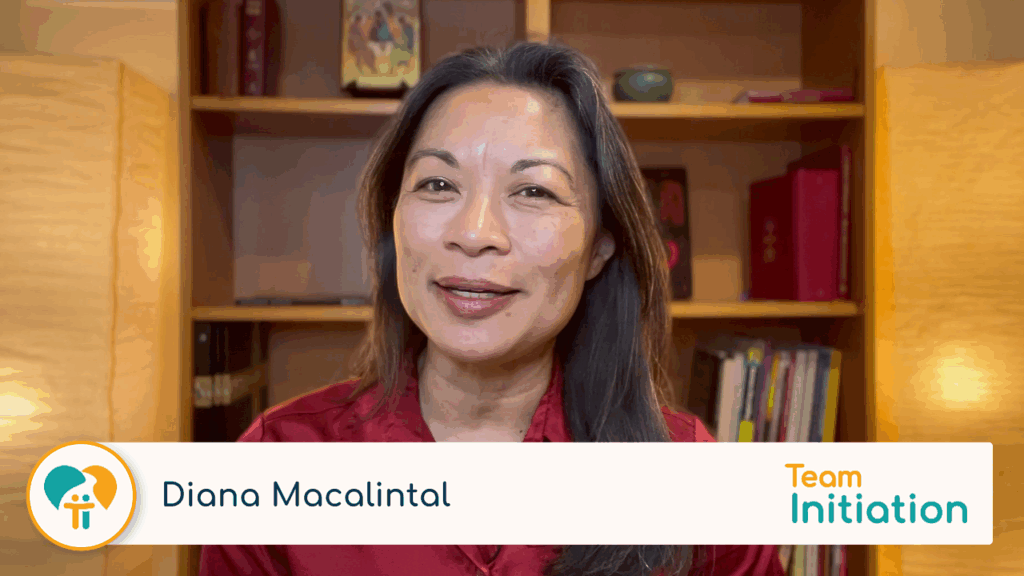 “Do you know Jesus Christ as your personal Lord and savior?”
“Do you know Jesus Christ as your personal Lord and savior?”
I did not immediately realize the young man on the sidewalk was talking to me.
“If you died today, do you know for sure you would go to heaven?” he asked as I was about to pass by.
He mistook my confusion for interest and continued with some Bible verses as I quickened my stroll to a near-jog. I later learned the young man was practicing “evangelization,” and I wanted nothing to do with it.
What I didn’t know at the time was that Pope Paul VI had recently published the seminal document, “On Evangelization in the Modern World,” in which he said that the church exists to evangelize. A few years later, when I started learning about the catechumenate, I discovered that whatever that young man on the sidewalk had been doing was not evangelization.
What is evangelization?
Evangelization, the Rite of Christian Initiation of Adults tells us, is what takes place during the first stage of the initiation process—the Period of Evangelization and Precatechumenate. Unfortunately, what a lot of parishes are doing during in this initial stage is also not evangelization. As Catholics, we haven’t had enough good models of evangelization, and therefore we flounder.
We know that interrogating strangers on the street is not effective evangelization. But what is evangelization that is authentic and not weird?
As catechumenate ministers, we have to let go of our image of evangelization as time-framed or curriculum-based. The period of evangelization in the catechumenate is not a “period” in the sense that the other periods of the process are. It has no beginning and no ending. It has no defined structure. We are always evangelizing.
It might also be helpful to expand our image of “inquiry,” which is how we often refer to this period. That’s not wrong, but it implies that people come to us to ask questions about what it means to be Catholic. The time of evangelization is a time for asking questions, but not like we think. The people most in need of Jesus’s message of love are not coming to our parishes to ask us questions.
Evangelization is much more about us going out than it is about people approaching us. But we don’t go out to ask people if they know they are going to heaven.
Primacy of witness
We go out first of all to be shining examples on the hill. We live our faith “out loud.” We do this not by confronting strangers with Bible verses but by living as people of love, harmony, and joy. We also do not deny or cover up our suffering. Our vulnerability is a witness to the strength Christ gives us in our weakness.
And when we do that, day in and day out, people will ask questions. That is the way in which this is a period of inquiry.
Pope Paul VI said (and Pope Francis repeated), that living that way will “stir up irresistible questions in the hearts of those who see how [Christians] live: Why are they like this? Why do they live in this way? What or who is it that inspires them? Why are they in our midst? Why do they live that way?” (On Evangelization in the Modern World, 21).
Pope Francis says questions like these lead straight to the heart of evangelization—to the witness of faith and charity:
What we especially need in these times are credible witnesses who make the Gospel visible by their lives as well as by their words, and who reawaken the attraction for Jesus Christ, for the beauty of God. (October 14, 2013).
Urgency of going out to meet others
People won’t see us living is such a countercultural way, however, unless we go out to meet other people. Jesus is our model. He didn’t wait for the disciples to come to him. He went out to find them.
Every Christian is likewise called to go out, says Pope Francis, to:
- meet others
- dialogue with people who think differently than we do
- encounter those who have no faith or weak faith
Pope Francis teaches: “The Holy Spirit urges us to go beyond our own narrow confines and he guides us to the outskirts of humanity” (October 14, 2013).
A pastoral plan centered on the essential
Pope Francis, a former pastor and bishop in a real community, says we often get diverted by secondary or superfluous things. He urges us to focus on what is essential. He says that what is essential is the fundamental reality: our encounter with Jesus in which we receive:
- his mercy
- his love
- the love of our brothers and sisters
“We need a plan animated by the creativity and imagination of the Holy Spirit,” says the pope, “who also urges us to take new paths with courage without becoming fossils!” (October 14, 2013).
When that young man encountered me on the sidewalk, I didn’t know what evangelization was. And he didn’t either. Perhaps if I could have been more loving and joyful toward him, perhaps if I could have tried to find some harmony between us, perhaps if I could have been a little more open about my fear and embarrassment of not being a good enough Catholic…perhaps we could have wound up evangelizing each other that day.
And perhaps if all of us can be that kind of witness with our lives, and go out more to encounter people who need to see that witness, and to always, always stay focused on Jesus’s mercy and love…perhaps we will see the day when the whole world is evangelized.
Your turn
What concerns do you have about evangelizing? How can you make it something that happens year-round? With everyone you meet? Share your thoughts in the comments below.


















Based on my experience with catechumens, Evangelization can only happen when first and foremost we do a lot of listening. We listen to the stories they tell and questions that they ask. By trying to understand where they are coming from then we can begin to evangelize not so much in words but by examples from the parish community.
Absolutely agree with the importance of listening. Would add this likely involves many encounters and genuine, non judge mental, wholly attentive listening. You are already conveying welcome before any verbal invitation.
When I directed the RCIA for the Diocese of Ft Wayne-South Bend I soon realized that one of the big questions was and is “where do the inquirers come from?” “On Evangelization in the Modern World” came out during that time. I realized that we needed to reach out to others. We need to realize that what we believe is Good News and witness to that. Not all inquirers have the Thomas Merton story. So I became Executive Director of the National Council for Evangelization, the organization that worked with the NCCB to promote evangelization. In a nutshell, Pope Paul VI said that everything we do is (or should be) evangelization. The silos that we have between religious education and liturgy and community service and so much more all need to be seen as evangelization. Evangelization is the “umbrella” over all our ministries. But people did not want to leave their silos
Then came the “come home again” efforts that were eventually named “new evangelization.” But we were mostly reaching out to those who have left the Roman Catholic church for one reason or the other. We wanted to “welcome them back.” We were still looking inward. Ane we have “roped those people in” who cannot be married in the church unless they become Roman Catholic.
We have yet to reach out to the unchurched or the “noners” (those who have no religion affiliation). In our increasingly secular world, this is where we should be evangelizing! This takes courage! It takes truly believing that our Faith is indeed Good News that we want to share with others. Often times those who journey through the RCIA are the zealous ones who have discovered the Good News through the process and are willing to share it. Getting fired up about our faith is amazing. The catechumenate process is a means to that.